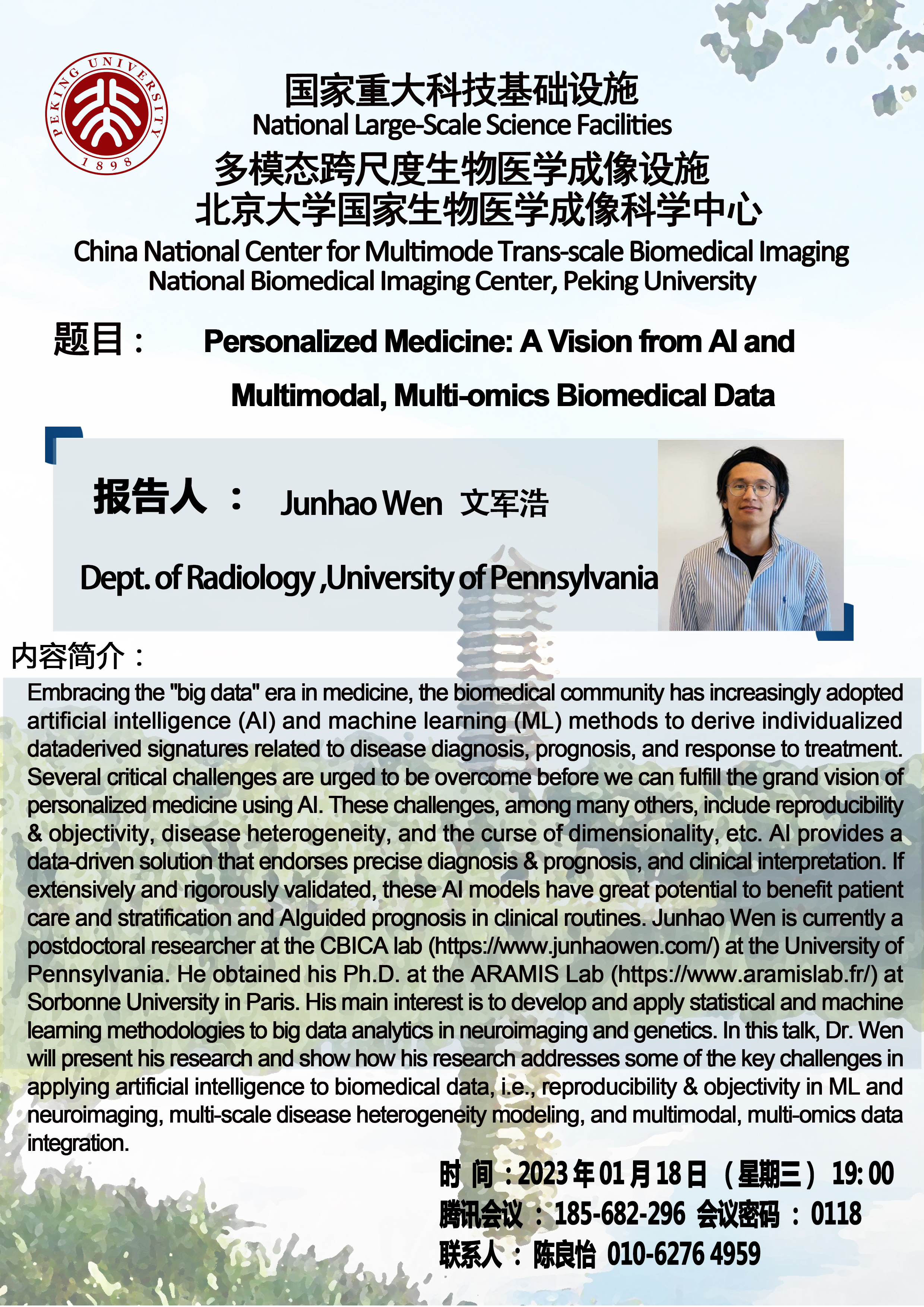Speaker: lunhao Wen (文军浩), Department of Radiology, University of Pennsylvania
Time: 19:00 pm, January 18, 2023, GMT+8
Venue: Tecent Meeting ID: 185-682-296 Password: 0118
Abstract:
Embracing the "big data" era in medicine, the biomedical community has increasingly adopted artificial intelligence (Al) and machine learning (ML) methods to derive individualized dataderived signatures related to disease diagnosis, prognosis, and response to treatment. Several critical challenges are urged to be overcome before we can fulfill the grand vision of personalized medicine using Al. These challenges,among many others, include reproducibility objectivity, disease heterogeneity, and the curse of dimensionality, etc. Al provides a data-driven solution that endorses precise diagnosis prognosis, and clinical interpretation. If extensively and rigorously validated, these Al models have great potential to benefit patient care and stratification and Alguided prognosis in clinical routines. Junhao Wen is cumrently a postdoctoral researcher at the CBICA lab (
https://www.junhaowen.com/) at the University of Pennsylvania. He obtained his Ph.D. at the ARAMIS Lab (
https://www.aramislab.fr/) at Sorbonne University in Paris. His main interest is to develop and apply statistical and machine learning methodologies to big data analytics in neuroimaging and genetics. In this talk, Dr.Wen will present his research and show how his research addresses some of the key challenges in applying artificial intelligence to biomedical data, i.e., reproducibility objectivity in ML and neuroimaging, multi-scale disease heterogeneity modeling, and multimodal, multi-omics data integration.
Contact: 陈良抬 010-62764959
Source: National Biomedical Imaging Center,
School of Life Science, Peking University
